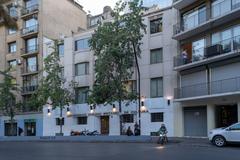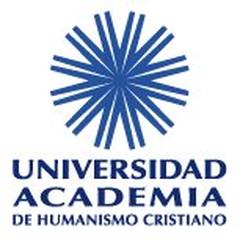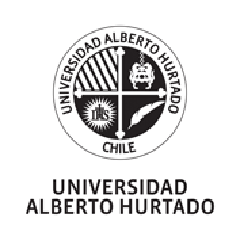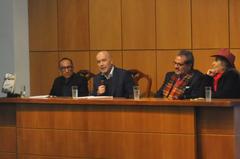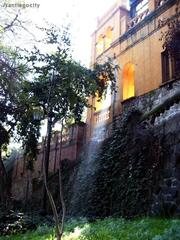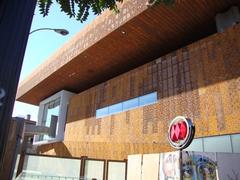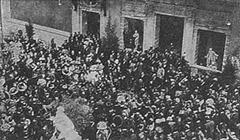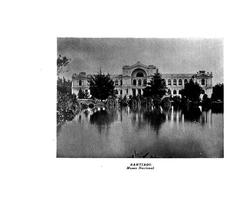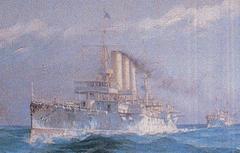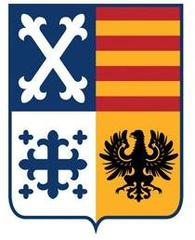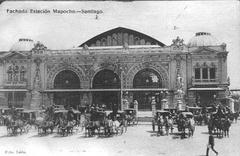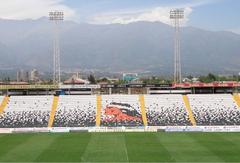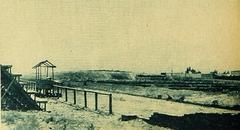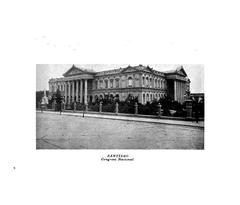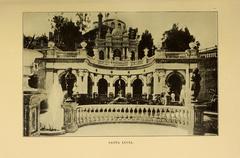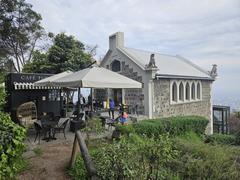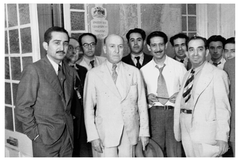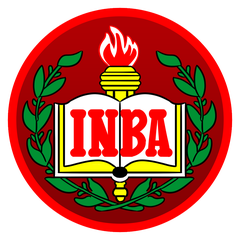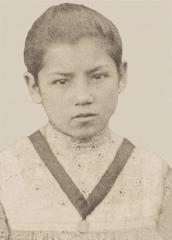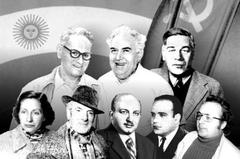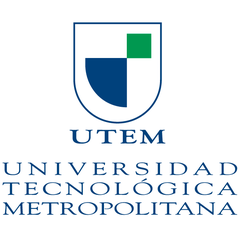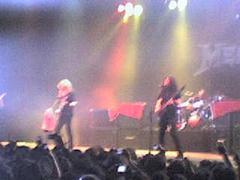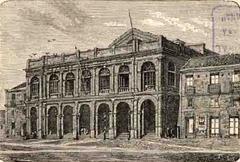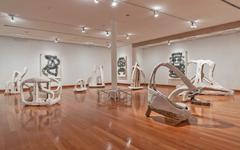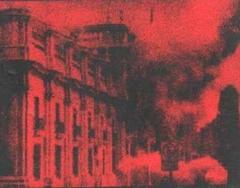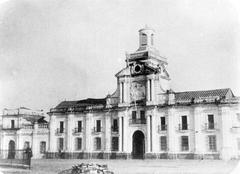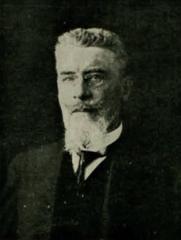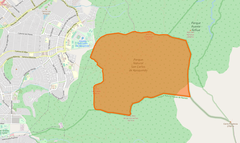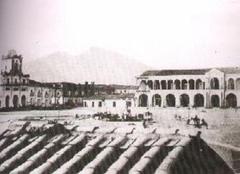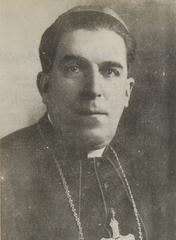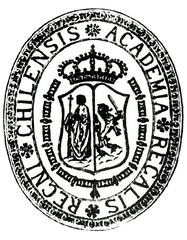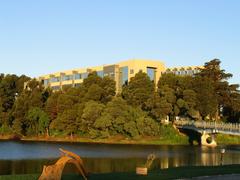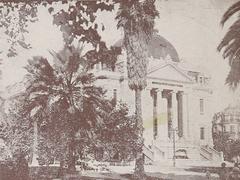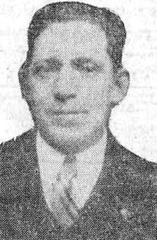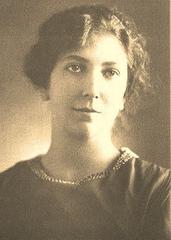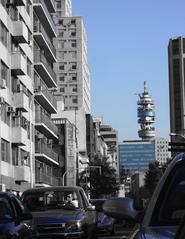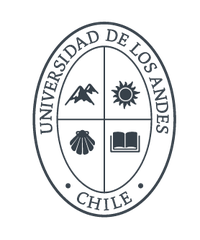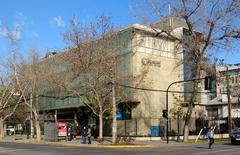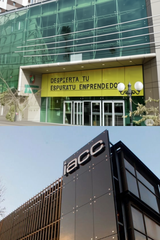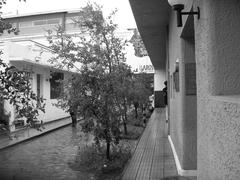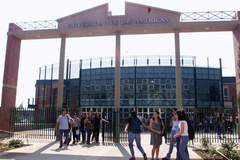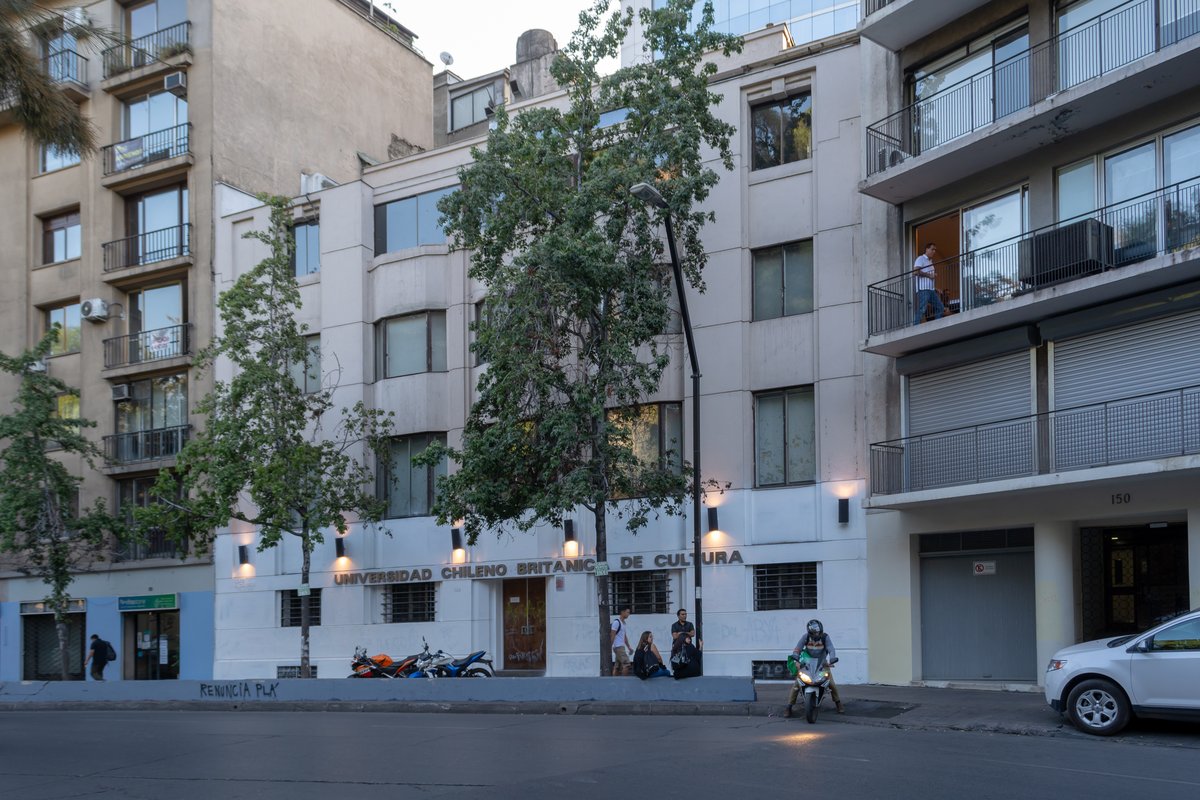
Chilean-British Culture University Santiago: Visiting Hours, Tickets, and Historical Site Guide
Date: 14/06/2025
Introduction
Santiago, Chile’s capital, is a vibrant city where centuries of history meet dynamic modern culture and academic innovation. Within this cosmopolitan landscape lies the Chilean-British Culture University (Universidad Chileno-Británica de Cultura, UCBC), a unique institution that serves as a bridge between Chilean and British traditions. Founded to promote bilingual education and intercultural understanding, UCBC stands as a symbol of international collaboration and cultural enrichment.
This comprehensive guide will help you plan your visit to UCBC and Santiago’s most notable historical sites. Included are detailed visiting hours, ticketing procedures, guided tour options, accessibility information, and practical travel tips. Whether you are a student, tourist, or culture enthusiast, you’ll find all you need to maximize your Santiago experience, blending the city’s rich heritage with UCBC’s distinctive offerings. For the latest schedules and event details, refer to the university’s official website and Santiago’s tourism portals.
Contents
- Introduction: Why Visit Santiago and UCBC?
- Santiago’s Historical Evolution
- The Chilean-British Culture University (UCBC)
- Key Historical Sites in Santiago: Hours and Tickets
- UCBC Visitor Information: Hours, Tickets, and Tours
- Practical Visitor Info: Transport, Accessibility, and Tips
- UCBC’s Cultural and Educational Significance
- FAQs
- Visual & Online Resources
- Conclusion and Final Tips
1. Why Visit Santiago and UCBC?
Santiago is a city where past and present converge. Alongside colonial plazas and modern skyscrapers, institutions like the Chilean-British Culture University enrich the urban fabric with opportunities for cultural exchange and academic exploration. Visiting UCBC and Santiago’s landmarks offers both educational depth and cultural immersion (Santiago Turismo; Experience Chile; UniPage).
2. Santiago’s Historical Evolution
Pre-Colonial and Colonial Foundations
The Mapocho River valley, Santiago’s heart, has been inhabited for over 10,000 years. Early populations like the Aconcagua culture cultivated the land, with the Inca Empire later influencing the region (Santiago Turismo; Welcome Chile). The city was officially founded by Pedro de Valdivia on February 12, 1541, at the base of Santa Lucía Hill. The checkerboard city layout, centered around Plaza de Armas, remains the historical core (Experience Chile).
Despite attacks from indigenous groups and natural disasters, Santiago’s resilience led to growth and a vibrant mix of architectural styles, reflecting influences from Europe in later centuries (Welcome Chile).
Growth into a Modern Metropolis
By the 18th and 19th centuries, Santiago transformed with new infrastructure, such as government buildings designed by Joaquín Toesca and modern amenities like telegraph lines. The city became the focal point of Chilean independence and, through the 20th and 21st centuries, grew into a bustling metropolis of over 7 million people (Chile Culture). Its skyline is a testament to its layered history.
3. The Chilean-British Culture University (UCBC)
Establishment, Mission, and Academic Profile
UCBC, a private non-profit university, was established to foster cultural and academic ties between Chile and the United Kingdom (UniPage). Its mission is rooted in bilingual education, intercultural understanding, and research that bridges local and international perspectives.
UCBC offers undergraduate and postgraduate programs in language studies, education, and cultural studies, emphasizing accessibility and diversity. Courses are primarily taught in Spanish and English, promoting global citizenship and cross-cultural communication (EduRank).
Campus and Location
Located in Santiago’s Providencia district, UCBC’s campus is easily accessible via public transit. The campus features a blend of neoclassical British and modern Chilean architecture, lush gardens, and vibrant communal spaces. The British-Chilean Cultural Center, galleries, and performance venues host exhibitions, festivals, and lectures year-round (Chile Culture).
4. Key Historical Sites in Santiago: Hours and Tickets
- Plaza de Armas: Open 24/7, free entry. Ideal for exploring Santiago’s colonial origins.
- Santa Lucía Hill: 7:00 AM – 10:00 PM daily, free entry.
- La Moneda Palace: Guided tours weekdays 9:00 AM – 2:00 PM; free, but advance booking required.
- Museo Histórico Nacional: Tues–Sun, 10:00 AM – 5:00 PM; tickets ~CLP 1,000.
Guided tours for these sites are available in English and Spanish. For up-to-date schedules and ticketing, check each institution’s official website.
5. UCBC Visitor Information: Hours, Tickets, and Tours
- Campus Hours: Monday–Friday, 9:00 AM–6:00 PM; Saturday, 10:00 AM–2:00 PM.
- Admission: Free for general visits. Some exhibitions or events may require tickets, available online or at the visitor center.
- Guided Tours: Offered in English and Spanish by prior arrangement. Tours cover campus history, architecture, and current programs. Book via the official UCBC website or visitor services.
- Accessibility: The campus is fully accessible, with ramps, elevators, and accessible restrooms.
6. Practical Visitor Info: Transport, Accessibility, and Tips
- Getting There: Santiago’s main airport (SCL) is 20 minutes from downtown. Use registered taxis or ride-sharing services (Fodor’s).
- Public Transport: Efficient metro and buses connect UCBC and major attractions.
- Currency: Chilean Peso (CLP). Credit cards widely accepted; carry cash for small purchases.
- Weather: Mediterranean climate. Hot, dry summers (Dec–Mar); mild, wet winters (Jun–Aug).
- Safety: Santiago is generally safe; use normal precautions and avoid unlicensed taxis (Worldly Adventurer).
- Language: Spanish predominates, but English is spoken at UCBC and tourist sites.
- Photography: Permitted in most areas; check for restrictions.
7. UCBC’s Cultural and Educational Significance
UCBC exemplifies the fusion of Chilean and British educational and cultural traditions. Its programs nurture bilingual and globally aware graduates. Community engagement is central, with public events, research collaborations, and partnerships both locally and internationally (Top Universities; UniPage).
The campus regularly hosts British-Chilean festivals, language workshops, and cultural exhibitions, making it a lively hub for both locals and visitors.
8. Frequently Asked Questions (FAQ)
Q: What are UCBC’s visiting hours?
A: Monday–Friday, 9:00 AM–6:00 PM; Saturday, 10:00 AM–2:00 PM.
Q: Is there an entry fee?
A: General admission is free; special events may require tickets.
Q: Are guided tours available?
A: Yes, in English and Spanish, by prior booking.
Q: Is UCBC accessible for visitors with disabilities?
A: Yes, with ramps, elevators, and accessible facilities.
Q: Can I attend cultural events if I’m not a student?
A: Many events are open to the public.
Q: What languages are spoken?
A: Spanish and English are widely used on campus.
9. Visual & Online Resources
- Explore virtual tours, photo galleries, and event videos on UCBC’s official website.
- Download the Audiala app for curated guides, maps, and up-to-date event listings.
10. Conclusion and Final Tips
A visit to the Chilean-British Culture University (UCBC) is a chance to experience the convergence of two rich traditions within Santiago’s dynamic urban landscape. Whether you are interested in academic programs, cultural festivals, or simply exploring a beautiful campus, UCBC offers a welcoming environment for learning and exchange.
Final Tips:
- Plan ahead by booking tours and checking event calendars.
- Use Santiago’s metro for easy access.
- Leverage digital resources like virtual tours and the Audiala app for an enhanced experience.
- Respect local customs and enjoy the unique blend of Chilean and British hospitality.
For more in-depth information, refer to the sources and official links below.
Sources and Official Links
- Santiago Turismo – History of Santiago
- Experience Chile – Santiago History
- UniPage – Chilean British University of Culture
- EduRank – Chilean-British University of Santiago
- Chile Culture – Santiago
- ExperienceChile.org – Santiago Places of Interest
- Fodor’s – Santiago
- Worldly Adventurer – Things to Do in Santiago
- Top Universities – International Education
Other Useful Resources:
- Official Chilean-British Culture University Website
- Learn Chile Network
- Santiago Tourism Office
- UniversityGuru – Universities in Santiago
- TourHQ – Santiago Tour Guides
- GoTravelTipster – Santiago Travel Guide
- Springer – Education Reform in Chile
- Roam and Thrive – Travel Tips for Chile
- Howlanders – Things to Know Before You Travel to Chile
